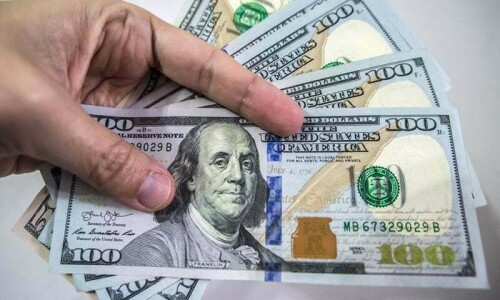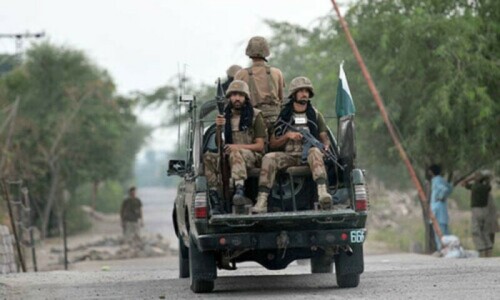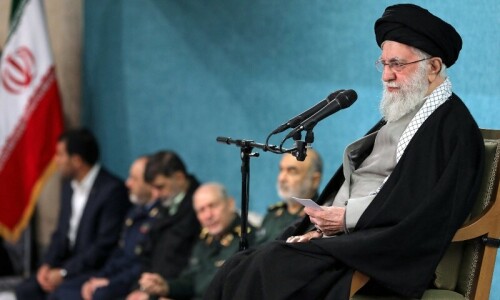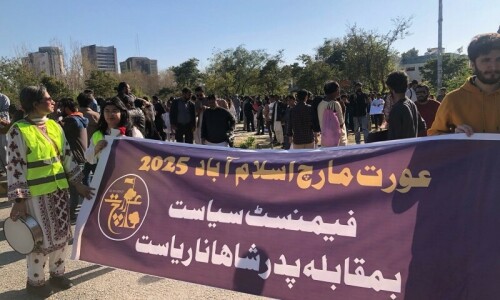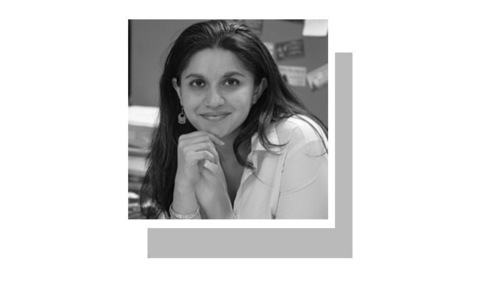Protests were planned across Paris on Friday by civil society who dangled banners from the Arc de Triomphe calling upon the French President, François Hollande, to “renew the energy”, as the deadline for the UN climate agreement was extended to Saturday. Ministers from over 190 countries negotiated all night behind closed doors only to announce that the new deadline would probably be Sunday now. The French hosts would like to wrap up the summit as early as possible because on Sunday there are to be important regional elections in France.
A “high ambition coalition” is emerging at the talks comprising both developed and developing countries who wish to restrict global warming to 1.5 degrees centigrade instead of the legally agreed upon 2 degrees. Scientists say if we go above 2 degrees, then we are headed towards “catastrophic climate change”. Today Brazil has joined the coalition led by countries like the US and the European Union. “This is a game changer,” said Bilal Anwar, who is part of the Pakistani delegation and has been following the COPs for several years. “Now both sides of the North-South divide are coming together on a common goal which is ambitious”.
“I don’t think this alliance is a good idea – it is actually ‘high ambition’ without any ambition. The countries who have signed up give lip service to 1.5 degrees like the US and EU without altering their targets and commitments,” says Meera Ghani Ceder, a young Pakistani climate activist who for the longest time was the only female associated with the Pakistani delegation at the global UN climate negotiations. Pakistan has not joined the coalition, which is growing in membership by the hour in Paris.
Meera began her career during the Bali climate talks in 2007 and is now working for a Catholic Development Network called “CIDSE”. Her boss would be the Pope who has called on rich countries to pay their “ecological debt” to poor countries. In his encyclical letter, which was released in May this year, he linked poverty to inequality and climate change. “In Paris our main focus was to ensure that the rights and needs of the poor and vulnerable are protected and reflected in the agreement that is still to be decided,” she says. Her organisation’s focus is on securing human rights and food security in the core part of the agreement. “Unfortunately these references were removed yesterday in the latest draft of the text agreement – and that too on Human Rights Day,” she points out.
Her organisation even participated in the protests that broke out when the first draft of the agreement was released at the Le Bourget conference centre. “We did a sit-in in the main hall calling for governments to do their fair share and for the countries most responsible to come to an agreement which doesn’t leave anyone behind”.
According to Awaaz, a civil society group monitoring the talks, “it’s a game of brinkmanship going on right now… countries like the US and EU are playing tough with finance while India, China and Saudi Arabia are degrading the quality of the text. Both sides need to work harder”. Martin Kaiser of Greenpeace says: “there will be lots of compromises at the end, but what the world should not see is any compromises on science and equity. Limiting global warming to 1.5 degrees centigrade is crucial for vulnerable countries and to do this we need to phase out fossil fuels like oil, coal and gas by the middle of the century at the latest”. If the world does agree upon the 1.5 degrees limit, it will help “spur and accelerate everything we do towards a low carbon economy”.
For Pakistan, it is important that the agreement clearly differentiates between developed and developing countries and its vulnerability is recognised. According to retired ambassador Shahid Kamal who is part of the Pakistani delegation, “Given our vulnerability, the amount of financial support we receive will be critical. This support to developing countries needs to be clearly spelled out in the agreement in terms of its nature, scale and sources”. He also believes that there will have to be many compromises before the final agreement comes out. “We can’t afford a failure here – we can’t all go back to our countries without a consensus agreement”.
Published in Dawn, December 12th, 2015

















